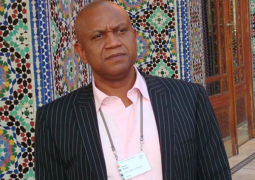Speaking at the validation workshop held at the Paradise Suites Hotel, Dr Makie Taal, permanent secretary at the HealthMinistry, said the national health strategic plan if validated would serve as a guide in providing the health sector a medium term focus, with defined objectives and priorities to enable it move towards attainment of the Gambia’s health policy targets.
Dr. Taal said it would also serve as a catalyst for engaging stakeholders within and outside the government sector, in addressing the broad determinants of health, which are beyond the purview of the Ministry of Health.
The overall goal of the strategic plan is to help significantly reduce inequalities in health care services, and reverse the downward trend in health-related outcome indicators, Taal further stated.
According to him, the successful implementation of this strategic plan is essential in achieving health for all goals, the national Vision 2020 targets, the PAGE and health-related MDGs.
The purpose of the national health strategic plan is to provide leadership and direction for the health sector, and create an environment that encourages innovation and improvement in delivery of health services, Dr Taal told participants.
He noted that the health sector strategic plan’s focus in The Gambia was anchored on the national health policy 2012 to 2020, which was linked to the country’s development blueprint.
This strategic plan would also play a vital role in the national health care delivery system of the country, he further stated.
Momodou Ceesay of WHO said the development of the strategic plan is a cause for celebration, and calls for a moment of deep reflection on the areas where all concerned stakeholders would like to see much improvement in the delivery of health services in The Gambia.
According to him, there was need for all stakeholders in the health sector to work together, and apply a concerted effort in helping The Gambia to overcome the key health issues facing the country, including the control of communicable disease, as well as management of the non communicable diseases of emerging importance.
He added that an effective partnership had always prevailed between the government of The Gambia and the UN system, and between the Ministry of Health and WHO, as proven by the strong cooperation during the process of preparing the strategic plan.



